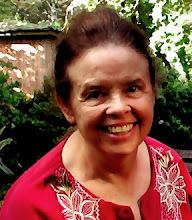

Congratulations! You’ve finally reached age 65 and can finally retire from your job. Whew! No more pre-dawn alarm clock ringing in your ear, no more scrambling to meet an impossible deadline, no more bossy boss. Now you can be your own boss!
So now what? Retirement planning seems to focus on having enough money, rather than on deciding what actually to do with your time. You certainly don’t want to be pinching pennies, but how will you fill your days? Ads aimed at seniors usually show a very fit, very good-looking couple—though appropriately gray-haired—all smiles, lounging on beach chairs, riding around in a golf cart, or dancing together cheek-to-cheek. Fair enough, those seem like enjoyable and relaxing past times, but is that all there is?
First off, such ads are somewhat misleading because many older people are divorced, widowed, or single. Women, who live longer on average than men (though the gap is narrowing), are more often without a partner. And folks who retire at age 65 can expect to have 20 more years of life. Those need not be empty years or devoted solely to leisure. While it takes all kinds to make a world, engaging in non-stop fun and games might actually get a little tiring and, if I may say so, boring. Why? The element of novelty and surprise soon wears off. It’s like buying a new car or a new outfit, exciting at first, but not for very long. Ever noticed how movie and sports stars often construct an enormously expensive and elaborate “dream house” and end up putting it on the market a short time later? It’s almost as though the process of designing and building their house was more enjoyable than actually living in it.
Not to debunk anyone’s retirement fantasy, but I am totally amazed that so many folks over 55, the usual minimum age (55? mere youngsters from my vantage point at age 76), have been flocking to gated, age-segregated retirement villages, some that cater to train enthusiasts, while others attract horse aficionados, flower lovers, or fishermen. Most amazing of all is the popularity of Disney-themed retirement villages, as if residents were in their second childhood. “Life’s a permanent vacation” is their motto, together with promises of a “stress-free” environment and your choice of golf, bowling, shuffleboard, mah-jongg, bingo, bridge, or ballroom dancing practically every day of the week. You don’t have to cook, mow the lawn, paint the house, or vacuum ever again. (But once you buy into such a community, I imagine that it’s not so easy to move out unless you’re being carried out feet first.)

I’m not advocating working until you drop, especially if you find your job less than fulfilling. But changing demographics in graying countries are putting a strain on younger workers, often our own sons and daughters. If you are still in moderately good health, what’s the rush to retire? Maybe you’d like to explore reduced work hours instead, or choose another avenue altogether, even a volunteer commitment. Don’t you still have something to contribute to the common good and larger community? I worked for 16 years at the American Occupational Therapy Association and, while I’m not an OT, that profession’s philosophy of engaging in goal-oriented, purposeful, activity rubbed off on me. Perpetual diversions are not particularly meaningful. There’s much to be said for working toward achievements that are important to yourself or others, achievements that go beyond winning at bridge or bingo. There’s also satisfaction in engaging with folks of all ages, ethnicities, and income levels, and with being out and about and still active and productive in the wider world, continuing to make your own impact and contribution, if only in a small way. Everything doesn’t have to be super easy; overcoming challenges can be healthy and fulfilling at any age. Experts on aging have found that maintaining creativity and independence, learning new skills, and facing mental challenges in later years improves health, memory, and overall function. So the easy way is not always the best. Retiring from a job these days does not mean pocketing the traditional gold watch, stopping completely in your tracks, and retiring from life if you still have plenty of vim and vigor left.
When I joined the Peace Corps in Honduras at age 62, I saw a special vitality in my fellow senior Peace Corps volunteers. Not only were we routinely accorded more respect than younger colleagues, but we were usually able to offer more experienced advice and guidance to local people, along with a big dose of patience and empathy. Admittedly, language learning was harder for many volunteers over 50—I was fortunate to already know Spanish—but they stuck with it until they mastered it. Just like younger volunteers, most felt they had gained more than they gave through their overseas service.
After an extended Peace Corps term of 3 ½ years, I returned to the States at age 66. I then found a new vocation as a part-time Spanish interpreter in hospitals and schools, a job that offers me variety and is much appreciated by all parties involved. Working in interpreting had never occurred to me before, but was an option that dovetailed with my responsibilities toward my 90-year-old mother, who continued to live in her own home until her death, but needed additional help and support. I also now give talks related to my books, both of them written since my Peace Corps service. Though my previous work often involved writing, I never had time for my own personal writing when I was working full time. Now I also serve on several non-profit boards, am an Amnesty International volunteer leader, and travel to Honduras annually on medical and educational missions, with enough time left over to be a mother, grandmother, and great-grandmother. My part-time work schedule has allowed me to have a more varied, but still productive, life. If we met, you would find me to be a very ordinary 76-year-old woman, certainly not any sort of superwoman.
Some people, especially those experiencing serious physical or mental decline, may require a protective environment. And a number of scholars and writers have found that having housekeeping and meals provided in their later years frees them up to engage more fully in intellectual tasks. Nor am I saying that you need to be constantly striving to stay fit, active, and productive. Stopping now and then to smell the roses, relax, meditate, and just go with flow are also in order, but vacations and recreation are most enjoyable, in my experience, when interspersed—whenever possible— with meaningful activity that contributes to your family, your community, and humankind. What about your legacy? On your deathbed, will you remember a hole-in-one as your greatest life achievement?
————————————————————-
Barbara E. Joe works as a Spanish interpreter and translator and a freelance writer in Washington, DC. She is the author of the award-winning Triumph & Hope: Golden Years with the Peace Corps in Honduras and, just out this year, Confessions of a Secret Latina: How I Fell Out of Love with Castro & in Love with the Cuban People (both on Amazon & Kindle). She blogs at http://honduraspeacecorps.blogspot.com.
Leave a Reply